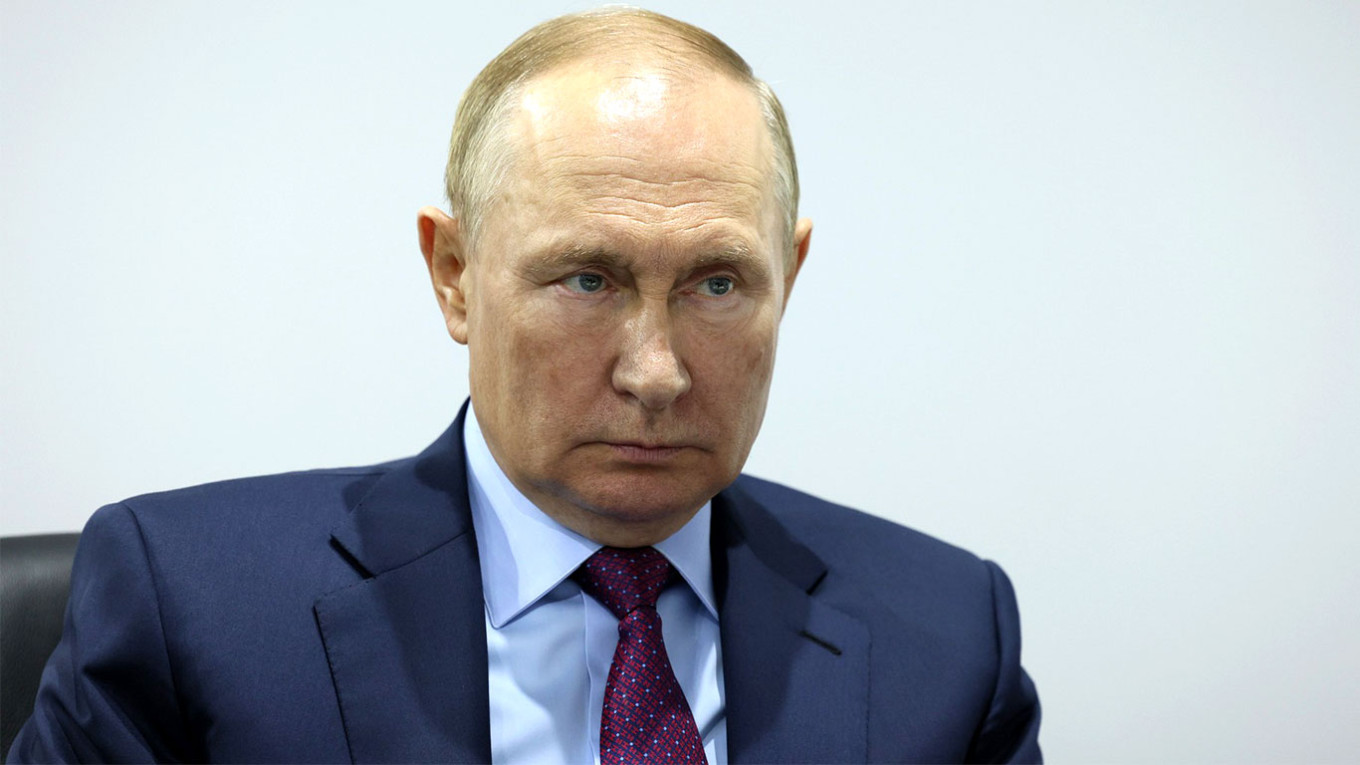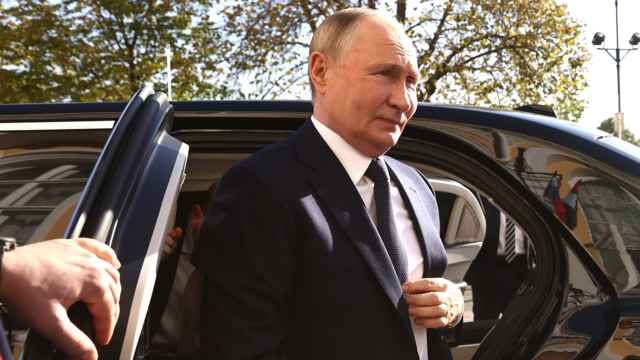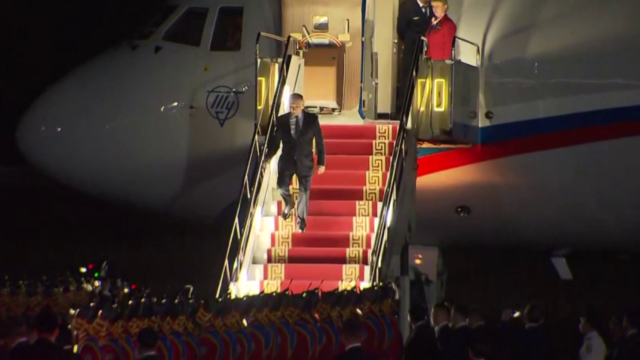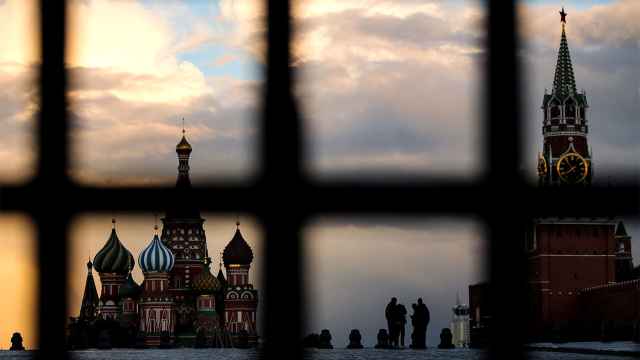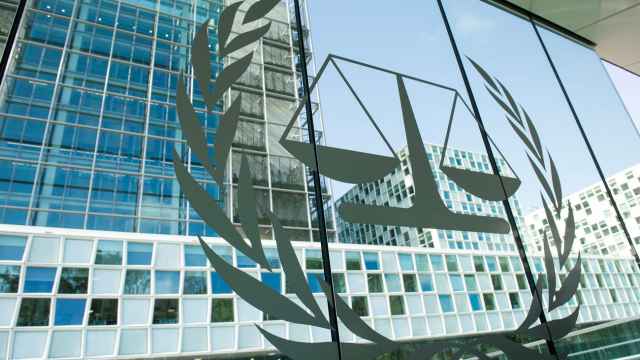Marking the ninth anniversary of his illegal annexation of Crimea, Russian President Vladimir Putin visited the occupied Ukrainian peninsula on March 18, a day after the International Criminal Court (ICC) in The Hague issued an arrest warrant for him.
Putin and his children’s commissioner, Maria Alekseyevna Lvova-Belova, face charges concerning the alleged illegal deportation of Ukrainian children to Russia. Symbolic as it might be now, the warrant signals a determination against impunity and points to the enormous scale of the abuses committed by Russian forces and their proxies for which Putin bears ultimate responsibility.
The deportation of Ukrainian children from Russian-occupied territories of Ukraine to Russia is in clear contravention of the fourth Geneva convention, which deals with the protection of civilians during war and to which Russia is a party.
The violations of children’s rights have been documented in harrowing detail by the Almenda human rights organization, which until 2014 was based in Crimea and has monitored Russian abuses against children and other vulnerable groups since then.
Russian abuses in Ukraine extend far beyond the deportation of children and far beyond Crimea. This has been documented in two reports by the Organization for Security and Co-operation in Europe (OSCE) on violations of international humanitarian law and international human rights law in Ukraine.
The United Nations Independent International Commission of Inquiry on Ukraine, has also compiled its own investigations. The reports, published in October 2022 and March 2023, give an indication of the scale of the abuses suffered by civilians since Russia annexed Crimea and occupied parts of Donbas in 2014.
There are clear obligations on occupying powers under the Hague Regulations on land warfare (1907) and the fourth Geneva convention (1949), as well as the first additional protocol to the Geneva conventions (1977).
Russian violations over nine years include making the occupation arrangements permanent, rather than temporary. They introduced the Russian ruble as currency and changed the curricula and language in schools to Russian. Russian passports have been forced on the population and men have been forcibly conscripted into the Russian military.
The annexations by Russia of Crimea in March 2014 and of the regions of Donetsk, Kherson, Luhansk, and Zaporizhzhya in September 2022 are also illegal under international law.
There is also evidence that Russia failed in providing even basic necessities — food, water, electricity, sanitation, and healthcare — to remaining residents, another requirement under international law.
Meanwhile, there have been reports of more direct abuses of civilians. These range from unlawful killings and abductions, to torture, sexual violence, and forcible deportations. Public and private property have been destroyed and the population denied basic civil rights and political freedoms.
The full-scale invasion in February 2022 further intensified civilian suffering. Russia disregarded the principles of distinction, proportionality and caution when attacking populated areas. They destroyed critical civilian infrastructure, and so-called “installations containing dangerous forces” — such as nuclear power plants.
Since February last year, the treatment of prisoners of war, who are protected under the third Geneva convention (1949) has been added to the list of Russian violations of international law. This has included systematic ill-treatment of PoWs, including torture and sexual violence.
Ukraine has begun its own efforts to hold individuals accountable through domestic war crimes trials. But the ICC arrest warrant for Putin indicates a broader front in the fight against impunity. The fact that Russia withdrew, in 2016, from the Rome statute that created the court does not mean that the Russian president could not be tried before it.
Former Serbian president Slobodan Milošević was indicted while still in office in 1999. He had to stand trial before the International Criminal Tribunal for the former Yugoslavia between 2002 and his death in 2006.
Similarly, the fact that Ukraine is not a signatory of the Rome statute is irrelevant here, as the country has twice exercised its prerogative to accept ICC jurisdiction. In 2015 it gave the court an open-ended right to investigate potential crimes committed on Ukrainian territory after Feb. 20, 2014.
Another option is to prosecute Russia’s leadership specifically for the crime of aggression against Ukraine before a special tribunal, set up as a hybrid international mechanism to complement the ICC and domestic Ukrainian legal proceedings.
Other specialized bodies can also hear cases against Russia. The UN aviation council agreed to do so on March 17 in the context of the 2014 downing of flight MH17 over Donbas.
There is also the principle of universal jurisdiction. This allows states to prosecute individuals who are not nationals of their countries for war crimes. Germany, Switzerland and other European countries have made use of this mechanism to prosecute war crimes from the Syrian civil war since 2011.
But accountability alone will not even begin to address the suffering of Ukrainians. Helping citizens deal with the trauma they have experienced means building culturally relevant, local capacity for victims and survivors to organize, identify and advocate for their specific needs. There will need to be support for women and women-led households. Eventually, locally driven truth-seeking efforts will be necessary for people to live together safely again.
This kind of restorative justice will be an essential complement to retributive justice. There are already many victims and survivors of Russian abuses in Ukrainian-controlled and recently liberated territories. Working with these people is essential for their own sake, but also to constantly improve restorative justice efforts as Ukraine liberates more territories.
Raising awareness of international support for restorative measures is as important a signal to the people of Ukraine as the fight against impunity for Putin and other Russian war criminals. It signals a commitment not only to a Ukrainian victory but also to justice afterward.
This article was originally published by The Conversation.
A Message from The Moscow Times:
Dear readers,
We are facing unprecedented challenges. Russia's Prosecutor General's Office has designated The Moscow Times as an "undesirable" organization, criminalizing our work and putting our staff at risk of prosecution. This follows our earlier unjust labeling as a "foreign agent."
These actions are direct attempts to silence independent journalism in Russia. The authorities claim our work "discredits the decisions of the Russian leadership." We see things differently: we strive to provide accurate, unbiased reporting on Russia.
We, the journalists of The Moscow Times, refuse to be silenced. But to continue our work, we need your help.
Your support, no matter how small, makes a world of difference. If you can, please support us monthly starting from just $2. It's quick to set up, and every contribution makes a significant impact.
By supporting The Moscow Times, you're defending open, independent journalism in the face of repression. Thank you for standing with us.
Remind me later.



